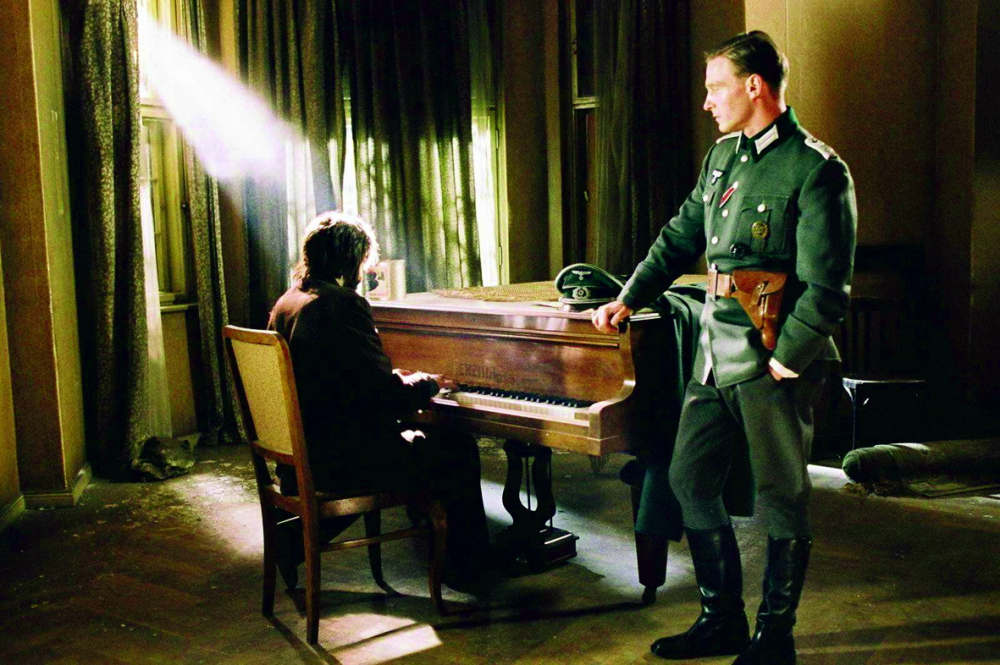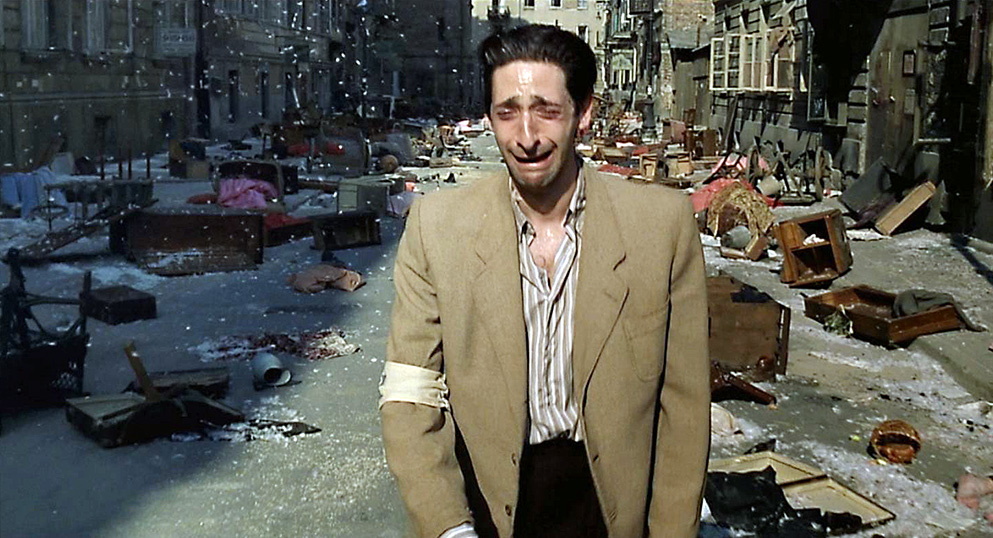🎬 The Pianist (2002)

The Pianist (2002)
The Pianist, directed by Roman Polanski, is a harrowing and deeply moving film based on the true story of Władysław Szpilman, a Polish-Jewish pianist who survived the Holocaust. Adapted from Szpilman’s memoir, the film presents an unflinching depiction of the horrors of World War II while also highlighting the resilience of the human spirit. With a powerful performance by Adrien Brody, breathtaking cinematography, and a hauntingly emotional score, The Pianist is one of the most profound and impactful war dramas ever made.

Set in Warsaw during the Nazi occupation, the film follows Władysław Szpilman (Adrien Brody), a talented pianist who witnesses the gradual destruction of his city and the brutal persecution of its Jewish population. At the beginning of the war, Szpilman is performing on the radio, but his life is shattered when the Nazis invade Poland. His family is forced into the Warsaw Ghetto, enduring starvation, humiliation, and violence at the hands of the occupying forces. As the situation worsens, the Jews are rounded up for deportation to concentration camps, and Szpilman is separated from his family—an event that leaves him alone and struggling to survive.
The film follows Szpilman’s desperate fight for survival as he hides in abandoned buildings, scavenges for food, and relies on the kindness of strangers. The once-celebrated musician is reduced to a shell of his former self, enduring cold, hunger, and isolation. Yet, despite the overwhelming despair, his love for music remains his only source of solace. One of the most powerful scenes in the film comes when Szpilman, weak and starving, is discovered by a German officer, Captain Wilm Hosenfeld (Thomas Kretschmann). Instead of killing him, Hosenfeld asks him to play the piano, and Szpilman delivers a hauntingly beautiful performance of Chopin’s Ballade No. 1. Moved by his talent, the officer helps him survive, proving that even in the darkest times, humanity and compassion can still exist.

Adrien Brody’s performance is nothing short of extraordinary. His physical transformation, combined with his raw and emotional portrayal of Szpilman’s suffering, earned him an Academy Award for Best Actor, making him the youngest recipient of the award at the time. Roman Polanski, who himself survived the Holocaust as a child, brings an intensely personal perspective to the film, ensuring that every scene is crafted with authenticity and emotional depth. The cinematography captures the desolation of war-torn Warsaw with haunting realism, immersing the audience in the brutality and devastation of the era.
Unlike many war films that focus on large-scale battles, The Pianist is an intimate and deeply personal story about survival, loss, and the power of art. It does not glorify heroism or resistance but instead shows the quiet, painful endurance of an individual caught in unimaginable circumstances. The film’s ending, while somber, serves as a reminder of the resilience of the human spirit and the enduring power of music.

With its haunting performances, masterful direction, and profound storytelling, The Pianist is an unforgettable cinematic experience. It is not just a film about war—it is a testament to the strength of the human will and the beauty of art in the face of unimaginable suffering.











